
A tribal woman (representative image)
Arjun Munda, Union Minister for Tribal Affairs inaugurated a “National Workshop on Tribal Enterprise with focus on Honey, Bamboo and Lac” organized by TRIFED and Ministry of Tribal Affairs (MoTA) in Delhi today. Renuka Singh, MoS for Tribal Affairs, Deepak Khandekar, Secretary, MoTA and Pravir Krishna, MD, TRIFED were present. Munda released flyers and reports on bamboo and bamboonomics; lac; and honey on the occasion. A National Workshop was organized to fine-tune its action plan on promoting tribal enterprise on bamboo, honey, and lac.
Delivering the inaugural address, Munda said that the focus of such efforts should not be confined to job creation only but should focus on fulfilling the needs of the market. Support system and research should be market driven and equilibrium should be maintained between the demand and supply in the market. For these products, markets should be innovation and research based. The quality and prices of the products should also be maintained properly. The tribals should be treated as entrepreneurs and efforts should be made to upgrade them in technology.
Addressing on the occasion, Renuka Singh said that such initiatives will strengthen ‘Van Dhan Vikas Kendras.’ The integration of ‘Van Dhan, Jan Dhan and Pashu Dhan’ will reform the lives of tribals considerably. Van Dhan scheme has the cluster of self-help groups to support tribals and is the mainstay for their family income who are living in and around the forest areas.
Deepak Khandekar in his welcome address said that the reason behind bamboo, honey and lac taken up for Van Dhan Scheme is that, these commodities are already having existing markets which enable producers i.e. tribal entrepreneurs catch on to the chain of procurement- primary level processing-storage value addition and marketing.
After inaugural session, technical sessions were held on the bamboo products, lac products and honey in which experts presented their presentations on the success stories, production, use and business related to these products. National Workshop was an initiative to formulate a strategy for establishing tribal enterprises based on skill and local resources available particularly in bamboo, honey and lac. In the workshop, national and international experts deliberated and gave their views and ideas for establishing implementable and commercially viable tribal enterprises. The expert insight and deliberation will explore the significance of bamboo, lac and honey to address livelihoods of tribal communities across the country. The workshop also introduced feasible technologies and process for production of value-added products from bamboo, lac and honey.
Bamboo
India is the world’s second largest cultivator of bamboo after China, with 136 species and 23 general (out of which about 19 care indigenous) spread over 13.96 million hectares. According to the Union Ministry of Agricultural and Former Welfare, India’s annual bamboo production is estimated at 3.23 million tons. Poor yield of Bamboo is one of the perennial problems in India. In contrast to China’s average yield of 50 MT/Ha, the maximal yield range in India is 10-15 MT/ha. This shows that there is lot of scope for bamboo enterprise based on the good stock. The bamboo is used in different types of products and it is a very good earning option for the tribals, for which necessary seed money, facilities and expertise need to be provided to tribal artisans. The bamboo enterprises can give immediate results leading to substantial increase in income of tribal artisans.
Honey
“As per the latest data from the ‘National Bee Board’ under the Department of Agriculture, the country’s total honey production reported in 2017-18 was 1.05 lakh metric tonnes, compared to the 35,000 metric tonnes in 2005-06. The major part of it comes from Apisdorsata. With international demand for honey growing, India exports 50 per cent of the commodity and in the last 12 years, exports have increased by 207 per cent. India has exported 61,333.88 MT of natural honey worth Rs 732.16 crores i.e. USD 105.48 million dollars to USA, Australia, UAE, Saudi Arabia. Morocco, Qatar Germany, UK, Japan, France, Spain and Italy being the main markets.
The tribals can be provided with trainings along with tools and kits for scientific extraction/collection and processing of honey from the beehive and thus the tribal SHGs can play a crucial role in this regard. Besides collaboration with KVlC, there is a need to collaborate with the forest departments for wild honey collection and protection, conservation and propagation of the tree species like Adina Cardifolia and Trivia Nudiflora that are preferred by bees to nest colonies.
As per the latest government estimates, large scale employment in the beekeeping sector is estimated to generate around 3 lakh man-working days by maintaining 10,000 bee colonies. The honey is an excellent source of earning and TRIFED is committed towards Prime Minister’s vision of a “Sweet Revolution” by way of making people prosper though production and trade in honey.
Lac
“Lac resin was once imported in sizeable quantity into Europe from India along with Eastern woods. It has been seen that the Lac is mostly cultivated by poor tribals to supplement their agricultural income. Lac cultivation in India is mainly confined to the states of Jharkhand which contribute 57% of the total production, followed by Madhya Pradesh at 24% and the balance 19% is contributed by Maharashtra, Orissa and West Bengal. This cultivation has proved to be a subsidiary source of income for the tribals. In the mid-1950s. Indian annual production was about 50, 000 tons of stick lac and export about 29,000 tons of lac. By the late 1980s, the figures were about 12,000 tons and 7,000 tons respectively. However, during 1992-93, Indian lac exports fell further to 4,500 tons only. On the contrary, during the same period, the countries like Thailand & China were able to increase their lac exports. Presently Indian lac export is almost non-existent, which needs to be revived. Lac with its availability and possibilities of cultivation in tribal areas has a great potential in creating livelihood and income generation opportunities for tribal communities.


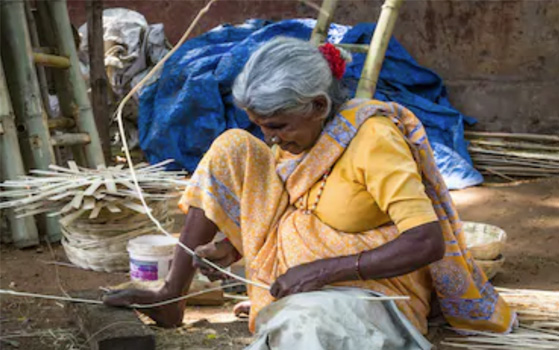
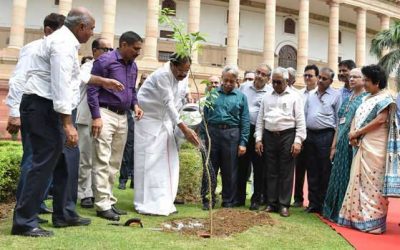
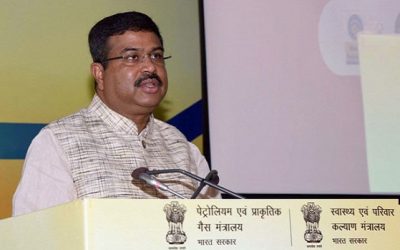


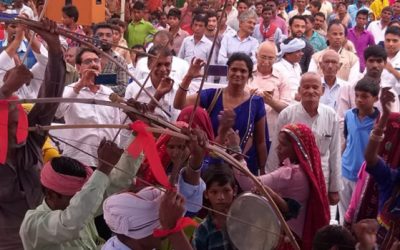




 Union HRD Minister Ramesh Pokhriyal ‘Nishank’ will launch ‘Samagra Shiksha-Jal Suraksha’ drive to create awareness about water conservation among all school students in the country. This mega drive would be launched at Dr. Sarvepalli Radhakrishnan Auditorium, Kendriya Vidyalaya No. 2 in Delhi Cantt.
Union HRD Minister Ramesh Pokhriyal ‘Nishank’ will launch ‘Samagra Shiksha-Jal Suraksha’ drive to create awareness about water conservation among all school students in the country. This mega drive would be launched at Dr. Sarvepalli Radhakrishnan Auditorium, Kendriya Vidyalaya No. 2 in Delhi Cantt.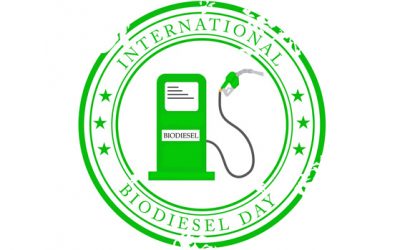
 World Biofuel Day is observed every year on 10th of August to create awareness about the importance of non-fossil fuels as an alternative to conventional fossil fuels and highlight the various efforts made by Government in the biofuel sector. Ministry of Petroleum & Natural Gas will organize World Biofuel Day on 10th August 2019 at Vigyan Bhavan, New Delhi. Minister of Petroleum & Natural Gas & Steel Dharmendra Pradhan will inaugurate the program. Minister of Health & Family Welfare, Science & Technology and Earth Sciences Dr Harsh Vardhan will be the Chief Guest of the function. This year the theme of the World Biofuel Day is “Production of Biodiesel from Used Cooking Oil (UCO).”
World Biofuel Day is observed every year on 10th of August to create awareness about the importance of non-fossil fuels as an alternative to conventional fossil fuels and highlight the various efforts made by Government in the biofuel sector. Ministry of Petroleum & Natural Gas will organize World Biofuel Day on 10th August 2019 at Vigyan Bhavan, New Delhi. Minister of Petroleum & Natural Gas & Steel Dharmendra Pradhan will inaugurate the program. Minister of Health & Family Welfare, Science & Technology and Earth Sciences Dr Harsh Vardhan will be the Chief Guest of the function. This year the theme of the World Biofuel Day is “Production of Biodiesel from Used Cooking Oil (UCO).”
0 Comments